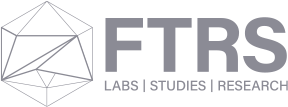Research
Research is multi-temporal — it is in the moment, retrospective and prospective at the same time. Years of expertise of participants from theoretical and practical projects come together and enable new spaces of exploration and learning to answer current and forward-looking questions. Accordingly, research in the FTRS project is multi-vocal, collaborative, and transdisciplinary in nature.
Current and emerging projects focus on urban future worlds, the non-archivable, and more-than-humxn alliances in the context of ecological, social, and spatial transformations. Some of these correspond with working groups in the lab as exploratory space for new ideas, theories, and methods.
Futures Naturally
PIs: Aylin Yildirim Tschoepe, Marion Schulze, Jeffrey Schnapp
Plants as actors still constitute a major blind spot in academic and societal discourses when it comes to sustainable ecological futures, let alone the role and place of plants in growing virtual worlds, or digitized natures as a mere technological fix to the diminishing variety of plant species.
While research in design, social sciences and humanities begins to touch upon the agentive nature of plants, we are yet to understand and reflect upon collaborations with plant more (self)critically: a posthuman collaboration with plants including and beyond organic matter will ultimately also shed light on everyone’s role as actors in ecological assemblages on a path toward common futures.
An:Archives
PI: Aylin Yildirim Tschoepe
As a site of selective public or private memory, a collection of evidence in material and immaterial form shaped by various power dynamics, and a metaphor for holding data, the archive is central to the mediated production and understanding of archival bodies as agents and mnemonic devices.
The an:archive, the “not-archive,” builds on a queer departure towards and including bodies, matter and materialities that resist conventional modes of archiving. Thereby, it takes a highly self-critical approach to the archive and has agentive features without becoming another dominating force. The an:archive is situated in the ambiguous realm that defies the binaries of memory/forgetting (Assmann 1999), un/building (Halberstam 2018), un/boundedness (Douglas 1970), threat/opportunity (Rao 2008), freedom/control (Foucault 1977), de/colonizing (Fanon 1952), de/composition (Kozel 2017).
